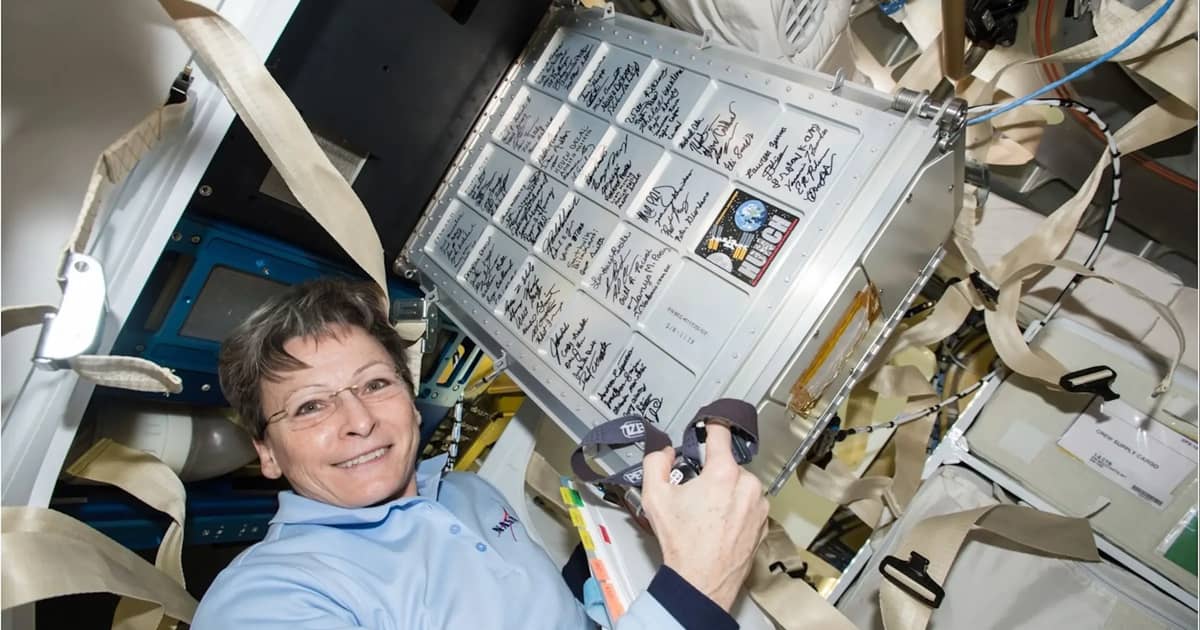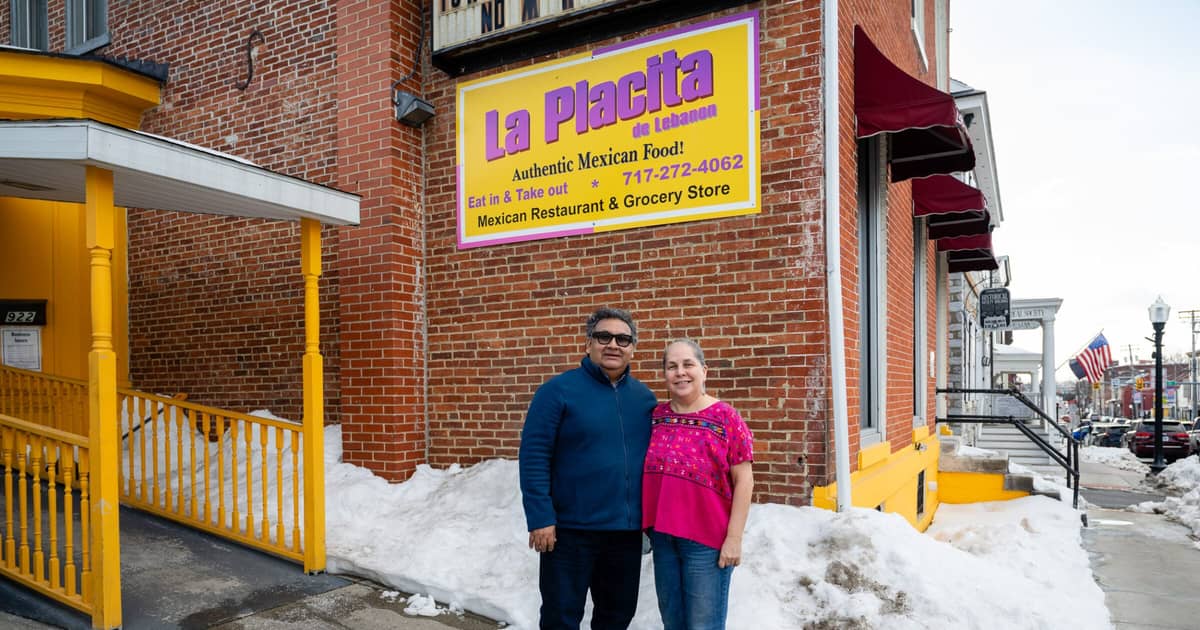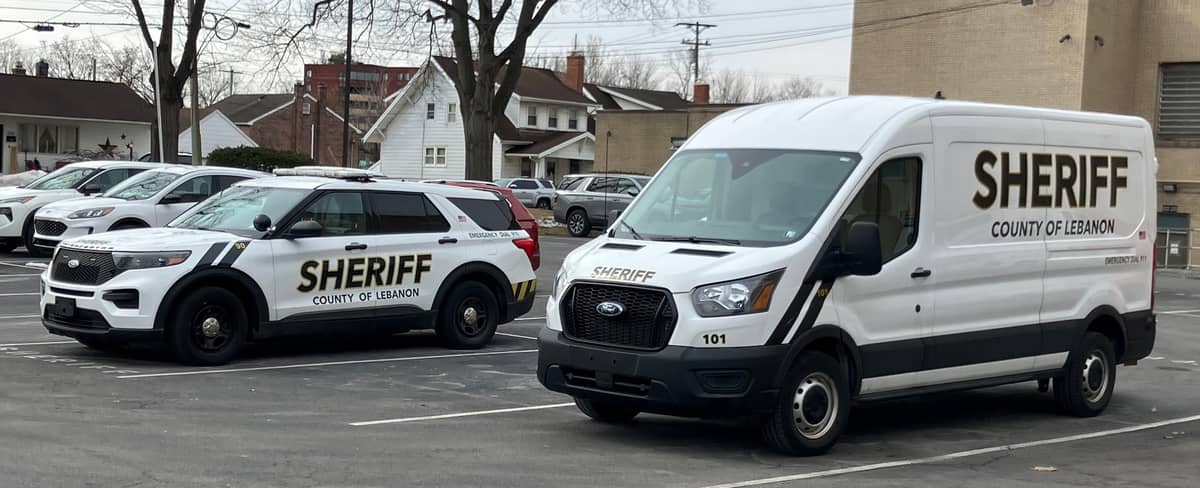Students in Eric Tanger’s precision machining program at the Lebanon County Career and Technology Center have been manufacturing parts for NASA through HUNCH.
HUNCH stands for High School Students United with NASA to Create Hardware.
Tanger said NASA’s HUNCH program creates “partnerships with local schools to produce, they call it hardware, for us, it’s like nuts and bolts and fixtures and handles … and then they use it, whether it’s for training facilities or training programs.”

According to Tanger, the production process started three years ago. During the 2021-22 academic year, students in Tanger’s program produced prototypes and sent their first group to NASA towards the end of the school year. Their first group of prototypes was then accepted at the beginning of this school year.
“We got our first official order to make more of the first batch of parts that we got qualified for. So, I’ve got an order for those,” Tanger, a Lebanon County native, said. “And then, I took two additional part numbers on. And so, my students currently are working on making the prototypes for those as well as fulfilling the initial order for this year.”
Due to the demands of the HUNCH program, the curriculum of Tanger’s program changes from one marking period to the next.
Tanger’s students are currently producing three components that will be assembled into a handrail system and sent to the International Space Station, where astronauts will use the handrails to hold themselves steady and move about in zero gravity.

On Friday, Dec. 16, LCCTC hosted a ceremony where current and former students from the program signed a panel that will be fastened onto a locker and sent to the International Space Station. Students also posed for pictures with representatives from NASA.
The ceremony was offered as part of the HUNCH program.

Tanger said, “NASA allows the students to sign [the side panel] if they’ve participated with this big program. And so, every once in a while, when they get ready to send stuff up to space, they get ready to make these … lockers. They get all the local schools together that have students that participated. They all get to sign it. … Then ultimately, that component, or that locker, will get flown up to space, so their names, their signatures, are basically floating around in space.”
“From what I’ve heard from other teachers, we generally have an idea of which launch our locker goes up. So, I’m hoping to keep track so I can at least let the students know when their signatures … flew to space.”
Tanger said it is more difficult to track when the components are sent to NASA due to the large number that LCCTC produces.
Tanger added LCCTC is “the only school in Pennsylvania that’s making hardware for NASA. … I’m also the only program that is currently making three components. … And the one item that I’m making, our contact [from NASA] just told me the other day we are the only school that is currently making that component. In the 20 years that they’ve been making these handles, they’ve never had a school able to produce the part. They usually had to buy it. … But I was able to figure out a way to make it with my students. And so, we are the only high school that [our contact] knows of that’s currently making this component.”
Regarding LCCTC’s partnership with NASA, Tanger discussed several ways the center benefits, with one of those benefits being increased public attention.
“One of the biggest struggles that I have as an educator, and the manufacturing trade in general, when we’re talking about teaching, that we have is so much of the stuff that we do is secretive and proprietary,” Tanger said. “Nobody really knows what we do. And so it’s through partnerships with big companies that allow us to share this exciting news that hopefully gets more kids interested in the possibility of making things, you know, manufacturing.
“It’s one of those things, especially in Lebanon County, there’s a lot of shops that are doing it. Most people don’t even know that they exist. A lot of people have no idea what they are even making behind that closed door. And so, I’ve got shop owners all the time saying, ‘I need employees. I need employees.’ And we just don’t have enough students getting into the trade.”
Tanger also observed students take a greater interest in projects assigned through the partnership.
“When I teach it in school, kids look at it [as] I’m just making them do something. It’s just a project that they take home. They might throw [it] away. They don’t see value in it. But when you start to tie it to big companies and you give them a purpose … you know, this is a handle, that someone will literally grab … and they’re going to hold tight to it. … It becomes more valuable. And I think the kids tend to take more pride in what they’re doing.”

Tanger then took some time to discuss an obstacle that he faces as an educator in the program.
“My biggest obstacle is always, and I’m sure most teachers will say the same thing, [funding],” Tanger said. “We get some support. But at the end of the day, … the CTE, or the career and tech ed programs, are expensive to run. They’re extremely valuable. And yet, we struggle to keep the newer technology in here.”
“But yet, as soon as a kid graduates and goes out to the workforce, that’s what they expect them to know is all the new stuff.”
“I’m fortunate enough in that I can pretty much make a lot of the stuff that we need,” Tanger said. “So, while we’re making parts for NASA, if I need new cutters and things like that, my students are literally setting up and making that.”
To Lebanon County residents and business owners interested in getting more involved with LCCTC, Tanger suggested making phone calls and trying to get in contact with teachers about joining ventures and forming committees.
Tanger said the manufacturing program, like every program at LCCTC, hosts two meetings a year, with its next meeting being held in mid-March. Local business owners are invited to attend and express their needs during these meetings. This feedback is then considered within the scope of the program and applied where appropriate.
Tanger said, for “most of us, we have a core group of individuals that show up. … I think most of us would welcome new members to help shape our programs because … we’re the only CTE school in Lebanon County. We service all six sending districts. … So, getting the support to help shape what these programs look like and what this school is is important, at least for a community as a whole.”
Tanger also mentioned LCCTC’s student-run restaurant, the Hilltop Café. The restaurant is open from 10:30 a.m. to noon on Wednesdays, Thursdays, and Fridays. Residents can call 717-273-8551, ext. 2113 to make reservations.
Read more: Pastry Shoppe: ‘Monday Morning Munchies’ (Lebanon Valley Food Critics)
“I use the NASA thing because everybody knows about it, so it’s a great jumping point to say, hey. The program exists. I need students. Manufacturing is alive and well. We need quality applicants. We need quality students,” Tanger said.
“And then, for me, I’m always looking for new members or people that want to take an interest to help shape the program, shape the environment, shape the students of tomorrow, to make everything better. So, I’m always looking for partnerships and just input in general so that I can help support the community.”
Questions about this story? Suggestions for a future LebTown article? Reach our newsroom using this contact form and we’ll do our best to get back to you.

Join our community of local news champions.
Cancel anytime.
Monthly Subscription
🌟 Annual Subscription
- Still no paywall!
- Fewer ads
- Exclusive events and emails
- All monthly benefits
- Most popular option
- Make a bigger impact
Already a member? Log in here to hide these messages
An informed community is a stronger community. LebTown covers the local government meetings, breaking news, and community stories that shape Lebanon County’s future. Help us expand our coverage by becoming a monthly or annual member, or support our work with a one-time contribution. Cancel anytime.
























